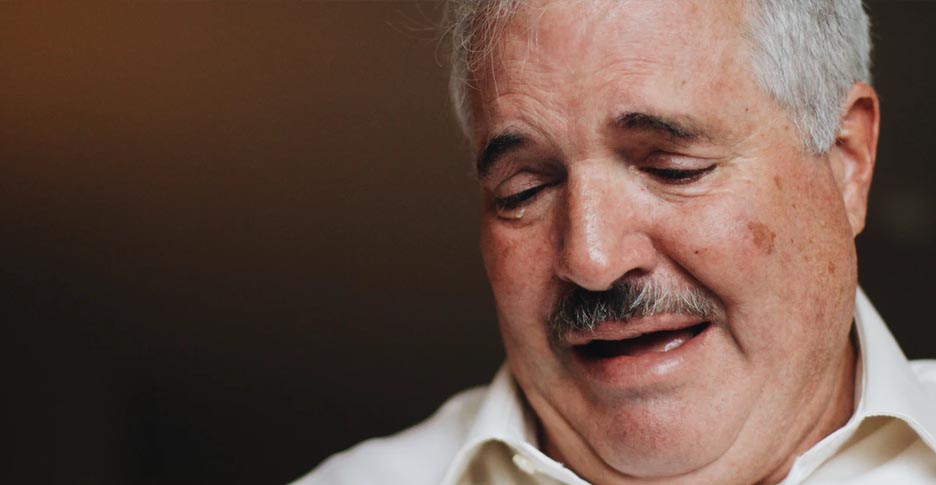When a loved one is diagnosed with dementia, it can be difficult to understand why they start hiding things. Dementia patients may feel like they are losing control of their lives and may try to hold onto what little control they have left by hiding their belongings. They may also be afraid that someone will take away their possessions or that they will forget where they put them.

When and Why Does Hoarding and Hiding Occur During Dementia?
Hoarding has the tendency to happen during the middle and early stages of dementia. There are times when hoarding is the patient’s response to feelings of isolation wherein the focus is more on things and not on interaction with other people or to loss of memory function control, friends or meaningful life role.
When a person has dementia, they will likely hoard things due to the anxiety of knowing that they might lose something. Having the things around them can give them some sense of comfort.
Patients with dementia also tend to hide items they hoard, forget where they placed them, and accuse other people of taking them. It is sometimes associated with delusions that someone will steal their items.
Hoarding may also form because of the life-long tendency that could get more out of control once dementia lessens the impulse control. For instance, a person who collected dolls for so many years might start growing that collection. This will soon turn into a large collection that might take over the whole house, making it end up containing many things that don’t hold any value at all.
Some of the most common items that people frequently hoard and hide include:
- Garbage
- Food
- Old clothes
- Plastic bags
- Papers
Why Hoarding and Hiding is a Common Concern for Dementia Patients
In one hand, if a patient is living in their own house, you might argue that they got all the right of living the way they please. But, there are several concerns that could make it a necessity at times to address the hoarding and hiding of a patient with dementia.
It might be best to intervene during the following scenarios:
- Storage of food is not safe to eat and attracting pests.
- There are numerous tripping hazards all over the hose because of the piles of items.
- Bills no longer get paid since they got lost in the mountain of other papers.
- Lost items can become a primary source of distress for loved ones.
How to Treat a Dementia Patient Who Hoards
Similar to other types of OCD-related disorder, hiding and hoarding may be harder to manage and more complicated to cure. This is mainly because the patients themselves don’t think of their behavior as a problem. When the person isn’t suffering from dementia, it would help to get psychotherapy and cognitive behavioral therapy. But, if the person has dementia, the best course of action is gentle management of the behavior.
Aside from hoarding, people who have dementia usually hide their stuff only to forget the hiding spot and put the blame on other people for stealing them. The person might end up spending lots of time rummaging or searching through stuff and getting upset as they do so. It could mean turning over and handling the contents of items again and again. The behavior could be very annoying for caregivers and family members if the patient constantly takes things in out of cupboards and closets.
How to Prevent Hiding and Hoarding Behavior
Here are a few tips to help you put a stop on a dementia patient’s tendency to hide or hoard things:
- Reduce the number of hiding spots. You can try to put up some signs or lock those places that you would like for the patient to stay out of such as unused rooms or closets.
- Redirect the attention of the patient to more enjoyable activities. Kitchen activities, gardening, or music can all satisfy their need to be engaged and active. For some patients, repetitious activities like folding napkins and sorting colorful towels, scarves, or socks can significantly reduce their tendency to rummage.
- Give easy access to drawers or closets that are filled with safe items such as magazines, scarves, and dishtowels where the person can rummage through.
- Minimize the amount of junk mail so that the dementia patient will have lesser to manage. As much as possible, try arranging the bills that will be sent to another person for payment. If the patient has some old mail that they cannot part with, make sure you organize them so they don’t spill or scatter on the floor.
- Lessen the amount of cash or number of valuables that are accessible to the patient with dementia. However, remember that the patient might get upset if they believe that they were robbed.
- Remove all nonessentials like out of season gear to reduce the clutter. Don’t forget, though, that the dementia patient may suffer a heightened sense of anxiety if they assume that the possessions were stolen.
- Search for patterns. If the dementia patient keeps taking the same things from you or another person, you can just give them their own.
- Buy two of the items that are always being search for such as keys, hearing aids, and glasses. The name of the doctor of the patient should be available if there is a need to fill duplicate prescriptions.
- You or a hired helper can ensure that everything is clean and organized as this is something that the patient might not be able to do.
Hoarding and hiding items is like a natural occurrence for patients with dementia. Instead of being annoyed or frustrated, try to come up with ways to reduce the problem to benefit not only the patient but also yourself.







